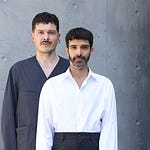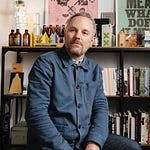Hi guys,
We’re very excited to share a new episode of Talks on Creativity with Monika Bielskytė. Monika Bielskyte is the founder of Protopia Futures and currently serves as Futurist in Residence at Nike (Embodied Futures: Storyworld Design and Strategy). She is also a futurist advisor to Climate Spring and Inclusive AI Lab, as well as a member of EY’s Luminary Expert Circle.
As a futurist she has worked on Disney Marvel’s Black Panther Wakanda Forever and her past clients include Google, Microsoft, World Economic Forum, DreamWorks, BBC among others. She has given lectures at CERN, Rockefeller University and Royal Society among others.
In this talk, Monika unpacks what it truly means to be a futurist — exploring how our values, stories, and embodied experiences shape the futures we design. From life-centric innovation to prototyping futures, she reveals how we can move beyond tech hype to imagine futures grounded in humanity, creativity, and care for all life.
For Monika, being a futurist is not about predicting trends or glorifying technology—it’s about understanding how our values, narratives, and histories shape the futures we create. The role demands deep engagement with the past as much as with what’s next. A true futurist, she says, must ask: What kind of future do we actually want to inhabit?
“Future doesn’t happen to technology—it happens to our bodies,” Monika explains. To her, innovation is not just technical progress; it’s about how advancements impact our physical, mental, and ecological well-being. Technology is an extension of our bodies and minds, but our collective future depends on how we choose to use it.
Being a futurist also means making people uncomfortable. Monika believes futurists shouldn’t merely inspire—they should challenge assumptions and provoke critical reflection.
Monika’s process begins with extensive research—around 90% of her work, she notes, is dedicated to studying insights from experts working at the bleeding edge of science and culture. But her goal isn’t to simply collect data; it’s to connect patterns across disciplines and uncover their wider social implications.
In her view, most corporate futurism stops at trend forecasting, creating glossy visions without addressing their societal impact. Her work, instead, focuses on foresight—understanding not only what’s probable, but also what’s desirable. If the trajectory we’re on doesn’t lead to a future worth inhabiting, she asks, how can we reshape it?
A key part of her method is helping organizations see beyond what’s immediately profitable or familiar. She encourages companies to anticipate long-term systemic change rather than react to short-term market forces. This means designing for resilience, not just efficiency.
Monika advocates for what she calls life-centric design, a framework that moves beyond user- or human-centered approaches. As she explains, true innovation must take into account the interdependence of all life forms:
“We need to understand how human success—in our health, economy, and creativity—is intertwined with the flourishing of the ecosystems we depend on.”
In her collaborations, Monika urges teams to think of innovation as a long-term relationship with the living world. This perspective challenges extractive, short-term thinking and pushes for products and systems that sustain both people and the planet.
She contrasts this with the outdated idea of user-centered design—a model she likens to addiction, where consumers are treated as “users” in the same sense as drug users. Instead, she calls for a paradigm shift toward designing with life, emphasizing collaboration, adaptability, and co-creation.
Continue reading the story on our website & watch the full episode on our YouTube channel ✨

















